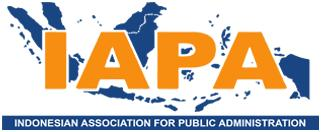Transforming The Spirit Of New Public Service Into Public Management Reform In Indonesia
Abstrak
Political transformation has led to public management reform in Indonesia. Theoretically, the aim of public management reform is to make a systematic adjustment for public sector organizations to be more adaptive and responsive to the dynamics of the current political situation, especially the needs and demands of citizens and market participants. To strengthen the implementation of public management reforms we need to explore more varied ideas through academic discussions. Therefore, this paper aims to analyze the adaptation of the seven basic values of New Public Service (NPS) in the practice of public management reform. This paper uses an exploratory method intended to obtain a valid understanding of the NPS and its translation into the practice of Indonesian public management reform. The results of this paper show that to carry out public management reforms we need three high-performance functioning components: citizen empowerment, the professionalization of bureaucracy and strategic leadership.
Transformasi politik telah mendorong terjadinya reformasi manajemen publik di Indonesia. Secara teoritik, tujuan reformasi manajemen publik adalah untuk membuat penyesuaian sistematis bagi organisasi sektor publik agar lebih adaptif dan responsif terhadap dinamika situasi politik saat ini, terutama kebutuhan dan tuntutan warganegara dan pelaku pasar. Untuk memperkuat pelaksanaan reformasi manajemen publik kita perlu untuk menggali ide yang lebih variatif melalui diskusi akademis. Oleh karena itu, paper ini bertujuan untuk menganalisis tentang adaptasi tujuh nilai dasar New Public Service (NPS) dalam praktik reformasi manajemen public. Tulisan ini menggunakan metode eksplorasi yang dimaksudkan untuk mendapatkan pemahaman yang valid tentang NPS serta penerjermahannya ke dalam praktik reformasi manajemen publik Indonesia. Hasil dari makalah ini menunjukkan bahwa untuk melakukan reformasi manajemen publik kita memerlukan tiga komponen yang berfungsi dengan kinerja tinggi yaitu: pemberdayaan warga negara, profesionalisasi birokrasi dan kepemimpinan strategis.
Kata Kunci
Teks Lengkap:
PDFReferensi
Castellani, L. (2018). The Rise of Managerial Bureaucracy: Reforming the British Civil Service. Cham: Palgrave Macmillan.
Denhardt, J. V., & Denhardt, R. B. (2007). The New Public Service: Serving, not Steering. New York: M.E. Sharpe, Inc.
Frederickson, H. G. (1980). New Public Administration. Tuscaloosa: University.
Gabrielian, V. (1999). Qualitative Research Methods: An Overview. In G. J. Miller, & L. M. Whicker, Handbook of Research Method in Public Administration (p. 184). New York: Marcel Dekker, Inc.
Hiariej, E., & Stokke, K. (2017). Politics of Citizenship in Indonesia. Jakarta: Yayasan Pustaka Obor Indonesia in cooperation with.
Liddle, W. (1985). Suharto's Indonesia: Personal Rule and Political Institutuions. Pacific Affairs, 68-90.
OECD. (2016). Open Government in Indonesia, OECD Public Governance Reviews. Paris: OECD Publishing.
Paulin, A. A., Anthopoulos, L. G., & Reddick, C. G. (2017). Beyond Bureaucracy: Towards Sustainable Governance Informatisation. Cham: Springer.
Pollitt, C., & Bouckaert, G. (2017). Public Management Reform: A Comparative Analysis—Into the Age of Austerity. New York: Oxford University Press.
Rohdewohld, R. (1995). Public Administration in Indonesia. Melbourne: Montech Pty. Ltd.
Thoha, M. (2003). Birokrasi dan Politik di Indonesia. Jakarta: Raja Grafindo Persada.
DOI: https://doi.org/10.24198/jmpp.v2i1.20190
Refbacks
- Saat ini tidak ada refbacks.
##submission.license.cc.by-nc-sa4.footer##
Jurnal Manajemen Pelayanan Publik Indexed By:



This work is licensed under a Creative Commons Attribution-ShareAlike 4.0 International License.


















21.png)



.png)